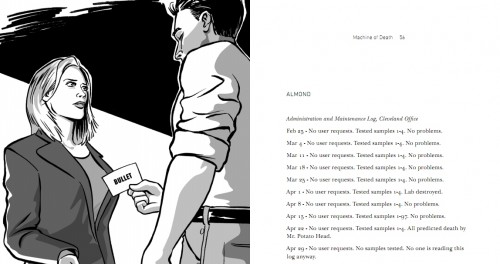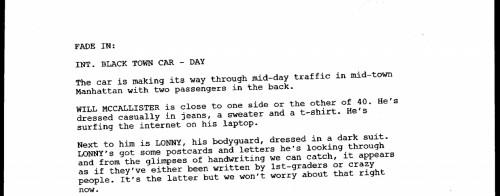TOM FRANCIS
REGRETS THIS ALREADY
Hello! I'm Tom. I'm a game designer, writer, and programmer on Gunpoint, Heat Signature, and Tactical Breach Wizards. Here's some more info on all the games I've worked on, here are the videos I make on YouTube, and here are two short stories I wrote for the Machine of Death collections.
Theme
By me. Uses Adaptive Images by Matt Wilcox.
Search
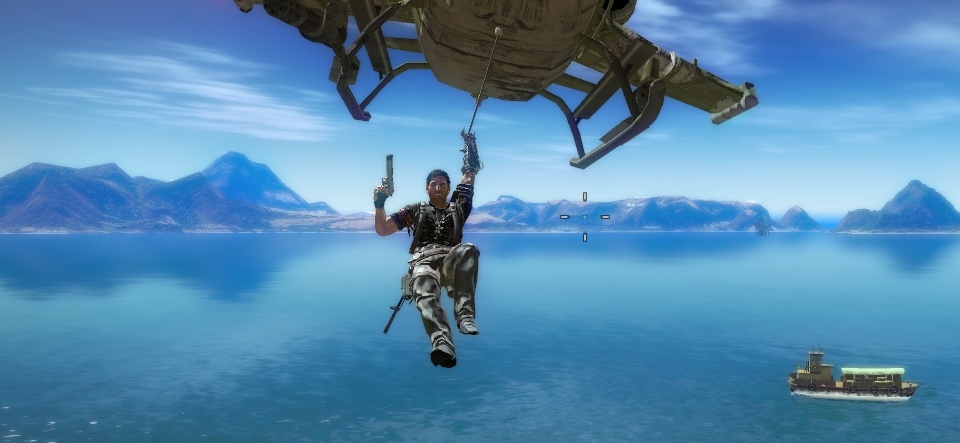
An Idea For A Better Open World Game
The last post was figuring out what we all like in open world games; this one’s about how to make that stuff work together. Can you include it all in one game, and still avoid theme-park silliness and repetitive grinding? No, probably not, but the ideas that crop up when you try are interesting. Continued
ALMOND Review
A lab assistant charged with one of the first machines of death refuses to test himself, while everyone around him succumbs.
Pure pleasure to read – or in my case, listen to. It’s the longest story so far, but every time reader Kevin McShane (who sounds excitingly like Peter from Fringe) pauses for more than a second, you’re hoping it’s not going to end.
The whole story is a log, that rapidly devolves into a journal, written in a friendly and clear-headed style. The watch-word of this collection has been ‘refreshing’, and what’s refreshing about Chernega’s protagonist is his almost complete lack of curiosity. He’s curious about other people’s predictions, but he’s one of the few characters in the book so far not even tempted by the prospect.
His diary charts the escalating public reaction to the machines, covering some of the same territory as my own, and I’m honoured they didn’t just scrap mine when they read this. ALMOND plays much more with the machine’s enjoyably sinister ambiguity – when it starts giving more than a few people GOVERNMENT, you know something interesting’s about to go down.
Some predictions are clever enigmas that are unraveled during the story, others are unexplained and seemingly unexplainable, and others seem to be openly fucking with you. That’s important, because the tension the story builds hinges on the narrator inferring a personality to the machine – one that becomes increasingly infuriating to him.
It has a punch, but doesn’t conform to the usual twist-story structure: the set up is almost immediately before the payoff, which prevents it from risking anticlimax. The voice, humour and escalating intrigue don’t need a giant question mark hanging over them to keep the story compelling throughout.
Machine of Death: a book that appears to be good so far. It’s now $18 whether you buy it from Amazon or Topatoco, and I think Topatoco have faster international shipping. The whole book is free in PDF form, and is trickling out steadily as an audiobook in podcast form. My story for it is online here.
All Books Found To Be Reasonably Or Very Good
The latest twenty book reviews on The Onion’s AV Club:
And people think games journalists don’t use the whole scale.

Alcohol
This post is slightly fetishistic about booze later on, which if you’re a recovering alcoholic might be kind of annoying.
I like alcohol. I don’t get drunk very often, probably once a month on average, but I drink with an enthusiasm and regularity that makes me very conscious of one possible way this could go. I could become like a chocoholic, but for booze. Continued
Advice
This section of preaching is directed at me rather than you, but I want to write it publicly to force myself to make sense. I’ll probably include some irrelevant music or photos with each post to distract you in case you get bored – this one’s the first big win of 2011’s adventure into the music other people discovered in 2010. Continued
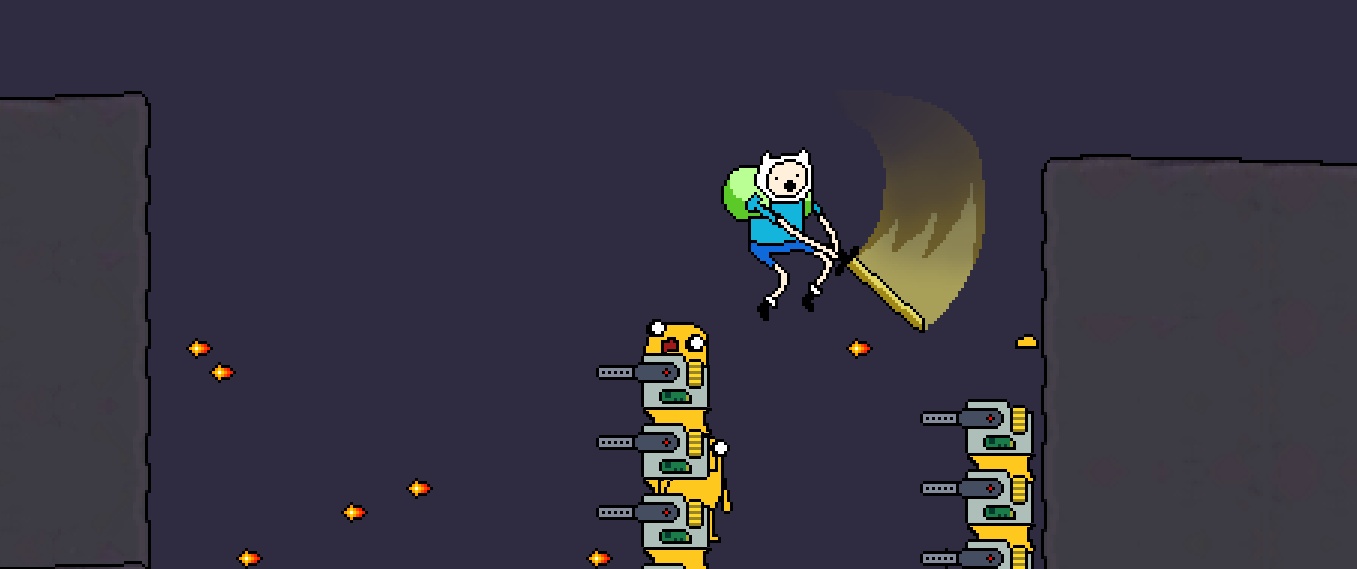
Adventure Time Game Post Mortem
On the weekend of the 15th, Fantastic Arcade held an Adventure Time-themed Game Making Frenzy. It meant anyone could make a game with Adventure Time characters for the purposes of that compo, which is rare, so I did.
I finished mine at 2am that Monday, left the next day for a work trip, then spent all of last weekend working on Gunpoint, so I haven’t had time to talk about how it went. Here’s how it went! Continued
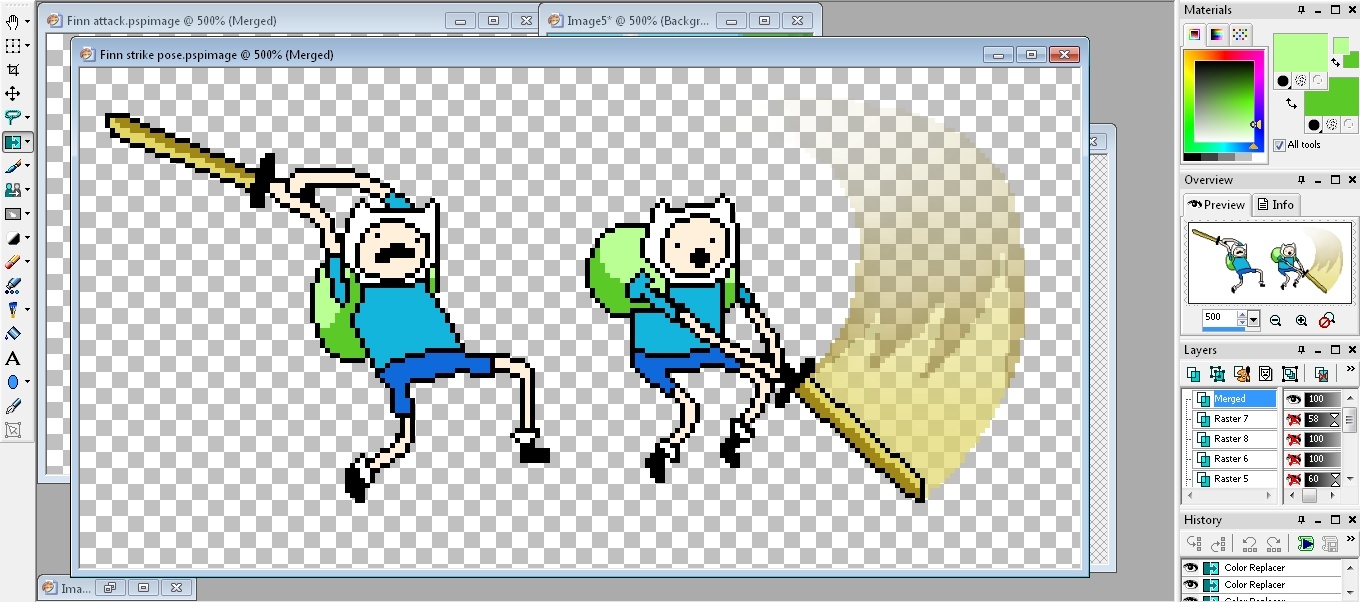
Adventure Time Game Jam
I did Ludum Dare once, where you make a game in a weekend, and it taught me loads about how to be ruthlessly efficient and cut things before you waste time on them. I’ve skipped every game jam since then, and every event except the IGF, to focus on Gunpoint.
This weekend, though, I’m letting myself do one. Because a) I made loads of progress on Gunpoint last weekend, and am very close to being able to show you a new feature I haven’t announced yet, and b) this will probably be the only chance I ever get to legally make an Adventure Time game. Continued
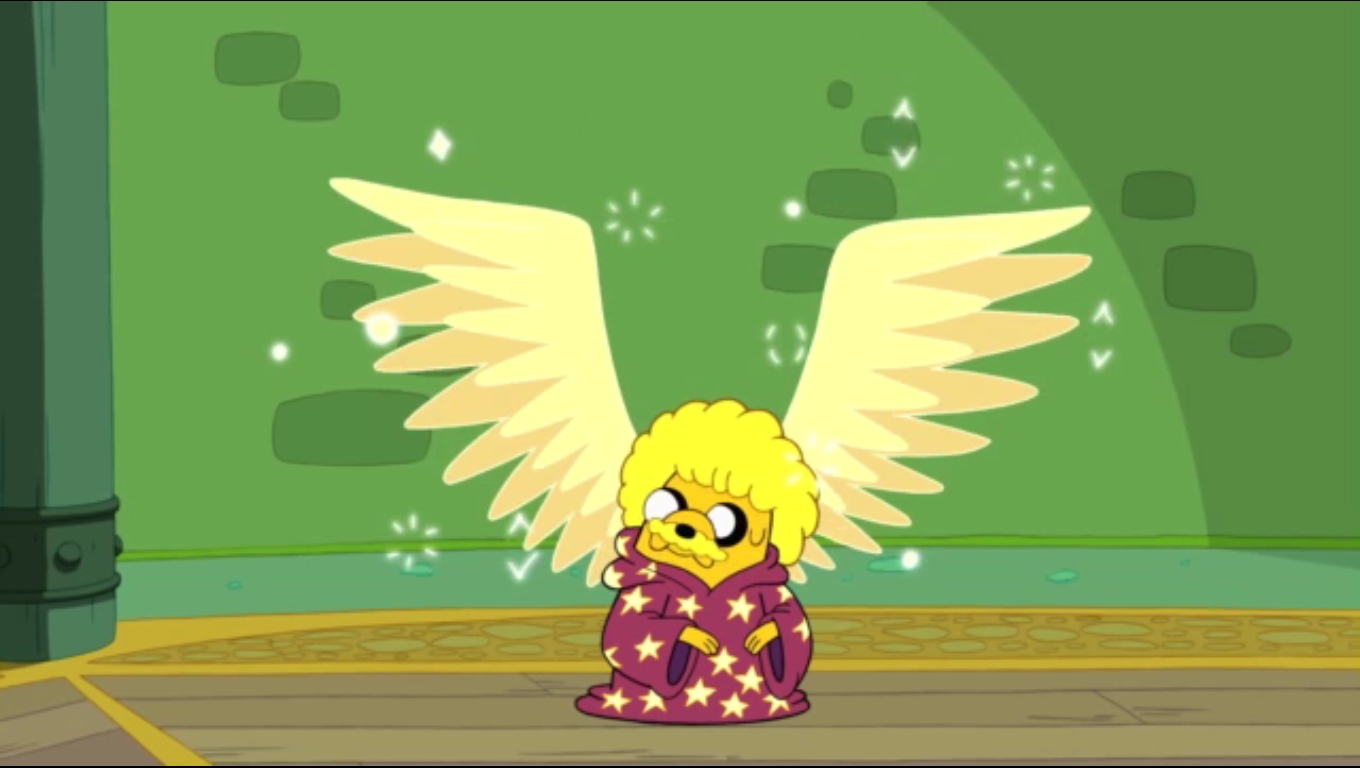
Adventure Time
Years back, Craig linked me to a pilot for a cartoon about a boy and a shape-shifting dog voiced by Bender from Futurama. It was eight minutes long, and amazing. Here it is: Continued
Adaptation
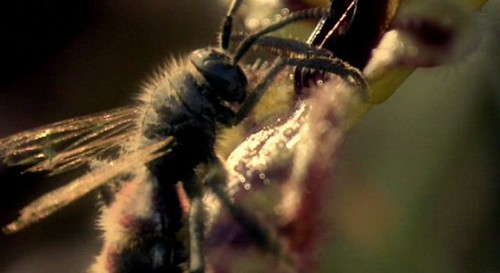
Genre: forget about it.
Stars: Nicholas Cage, Nicholas Cage, Meryl Streep, Chris Cooper (the homophobic dad in American Beauty).
Plot: tempting to say ‘forget about it’ again, but I’ll give it a go: a woman writes an article about a guy who steals rare orchids from nature reserves. The article is very popular, and a publisher asks her to adapt it into a book. She does, and calls it, like the article, The Orchid Thief. The book is very popular, and a producer asks screenwriter Charlie Kaufman to adapt it into a film. He tries, but can’t capture what he likes about it, and obsesses over his failure, ultimately writing first the entire history of the Earth, then himself, into the plot. Meanwhile, his admiring, friendly brother Donald takes up screenwriting himself, after attending a quicky course on it, exasperating his brother by coming up with lower-brow ideas typical of modern cinema and seeking Charlie’s approval. It’d take me about another paragraph of that size to explain the rest of the plot, then two or three more to qualify how much of it is actually true, and that the film he’s writing is in fact the film he’s in, which evolves dynamically as he, the character in it, makes decisions about how to save the screenplay he’s writing from either pretentiousness or never being finished. Instead, I just told you the plot of the plot summary I’d write if I was going to write the rest of this plot summary, but I did it rather cleverly within the plot summary itself, so perhaps I should have included the plot of the above plot summary before the plot of the rest of the summary, which doesn’t exist. I think I’m sooo goddamn clever.
By the way, I wasn’t just mocking myself there to mirror the relentless self-deprecation that consumes Charlie Kaufman when he realises what he’s done, I really do think what I did there was pathetic. If I wanted to mimic his self-deprecation, I’d do something like… well, see the last section called ‘Something Like…’
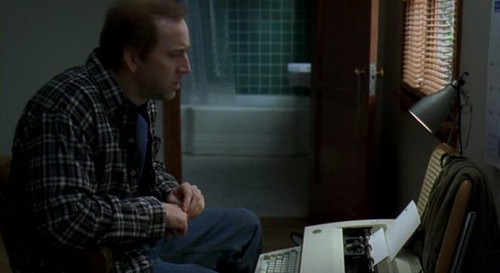
Why It’s Great:
- Well, check out the plot.
- Nicholas Cage – I’m so confused about how I feel about Nicholas Cage now that I can’t even remember how I used to; was he the annoying guy who always seemed to choose great films, or was he the basically decent actor who always got stuck in awful ones? Now that he’s been in Bringing Out The Dead and this, and I realise I really do like Con Air, I think I just plain like him. He’s fantastic in this, as both Charlie and Donald Kaufman, who spend a lot of time on screen together. You can’t make yourself believe for a second that they’re the same person, even though no attempt is made to distinguish them appearence-wise, beyond their wearing different clothes. The two roles would make a good litmus test for actors in general – can they make two identical-looking characters unassimilatably different? He can, and it’s a spectacular film, so he must be good.
- It’s hilarious. Not just Charlie’s self-loathing and Donald’s awful ideas, but the insane turns it takes toward the end, and the whole absurdly self-referential interaction between plot and genre.

A Quote: “Oh my God, I’ve written myself into my screenplay.” “That’s kind of weird, huh?” “It’s self-absorbed, it’s narcissistic, it’s solipsistic, it’s pathetic! I’m pathetic! I’m fat and pathetic!”
Something Like… Oh my God, I’ve written myself into my plot summary. It’s smarmy, it’s arrogant, it’s demeaning to the film, it’s pathetic! I’m pathetic! I’m stupid and pathetic!
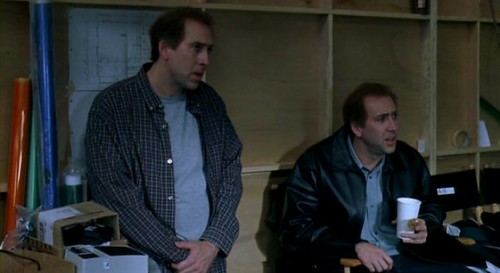
Abandoning The Main Quest In Oblivion
Oblivion’s main quest wasn’t unusually long, bad, or difficult, but it’s rare to actually find someone who bothered with it. The overbearing waffle of the introduction didn’t help, but I think it’s mostly that we just don’t want a single, long main questline in open world games. A primary story that’s the same for every player sits awkwardly in a game about freedom and customisation, and Oblivion’s sits more awkwardly still if you attempt it as the wrong class or at the wrong level.
You could have no main quest, but that might feel aimless or trivial. Even if we don’t do it, the existence of a main quest gives purpose to the world.
So what if the main quest was split up and woven into the guild questlines? People actually do those, because you can pick one that makes sense for your character and suits your style of play. In the case of Oblivion’s demons-invade main plot, each questline could have three key missions where the guild business brings you into contact with the invasion:
- One in which you first discover the demons in the course of your work.
- One in which the escalating invasion directly affects the guild and becomes a priority.
- One in which you find and kill a Daedric Prince and end the invasion.
Luckily, the guild questlines are already structured into three neat groups of quests. These special missions could come between each group, like this:
Fighter’s Guild
- Five quests for Burz gro-Khash in Cheydinhal.
- Main Quest 1: you’re hired to investigate the disappearence of a small expedition of travellers. You find them all slaughtered, and follow the trail of blood to encounter a single Dremora, who you kill. The guild are disturbed, but want more info.
- Five quests for Azzan in Anvil.
- Main Quest 2: a portal opens near Chorrol, and the overwhelmed city guard enlist the Fighter’s Guild to help their defense. In the aftermath of the battle, the Blackwood Company move in and exploit the lack of Imperial presence to take over the town and extort its citizens.
- Five quests for Modryn Oreyn in Chorrol against the Blackwood Company, culminating in their termination.
- Main Quest 3: a portal opens outside the Imperial City and you, as guildmaster of the Fighters’ Guild, are called to deal with it. You lead a team of the key guild characters through to face a Daedric Prince. It’s almost impervious to your attacks, but Modryn has brought some confiscated Blackwood Company Hist Sap for you as a last resort. Drugged up, you’re strong enough to kill it and end the invasion.
If you haven’t got far enough in any other guild questlines at that point to have encountered invasions during them, it’s not made clear to you at this point that you’ve only truly quelled a quarter of the demonic forces about to break through to this realm.
Once you have, you’re sent to see Raminus Polus at the Arcane University who explains their mystic types had feared as much: that the prince you vanquished was one of many. From there, the other guild questlines would unfold as if they were your first, each woven into a demon invasion of a different part of Cyrodiil, each of which is ultimately stopped in a style befitting that guild’s unique talents. It’s a bit redundant to say things like that in vague terms, so specifically:
Thieves’ Guild
- Four quests for Armande Christophe in the Imperial City.
- Main Quest 1: a wealthy home is found half-destroyed, its valuables ripe for the picking. During your escape, you brush witht he daedric forces that destroyed it.
- Three quests for S’Krivva in Bravil.
- Main Quest 2: creatures start appearing near Anvil, a prelude to a portal opening. You have to get Hieronymus Lex and his best guards reassigned to that city to better protect it. (This is the same as S’Krivva’s fourth quest, only the context and motive are different.)
- Four quests for the Gray Fox, gathering esoteric artifacts to use in the theft of an Elder Scroll.
- Main Quest 3: The Scroll details how to close an Oblivion portal, but the Empire were refusing to consult because it involves dark magic. The method requires a filled Black Soul Gem to be brought to the heart of the Oblivion plane, so you have to locate and steal one, then sneak your way into hell itself to collapse that realm, killing the Daedric Prince inside.
Mage’s Guild:
- Seven ‘recommendation’ quests.
- Main Quest 1: Your final recommendation quest involves a summoning spell that unexpectedly brings forth a Dremora. It slaughters a guild member before you can bring it down.
- Four quests for Raminus Polus.
- Main Quest 2: Your research for Raminus on Black Soul Gems suggest they might have caused the Dremora’s appearence. You’re tasked with replicating the event, which backfires and briefly sucks you into Oblivion.
- Seven quests for Hannibal Travern further investigating Black Soul Gems and Necromancy.
- Main Quest 3: The Necromancer King you kill at the end of Hannibal’s quests was responsible for the dimensional breach. You use his staff to intentionally summon a Daedra Prince to this realm and take him on, with your guildmates.
Dark Brotherhood:
- Four quests for Vicente Valtieri.
- Main Quest 1: an early target turns out to be a Mythic Dawn member, and Daedric creatures spill forth as he dies.
- Four quests for Ocheeva.
- Main Quest 2: Lucien believes the Mythic Dawn have infiltrated the Brotherhood, and charges you with rooting out their agent the only sure way, as in The Purification.
- Seven dead-drop quests after Lucien sends you into hiding.
- Main Quest 3: The Mythic Dawn agent is alive and has been tampering with your orders. When you’ve rooted him out, you’re made Listener and entrusted with what the agent was after: a perfect blade capable of slaying even a Daedric Prince. The Night Mother can transport you to his realm, but he can only be killed if caught unawares.
Dedicated players may ultimately do all four questlines, and a final Main Quest chunk ought to wrap them up and confer a final reward. But most people would probably play the same amount of Oblivion as they already do. The point is not to try to make players see more of the game’s content, but to turn missed content from a negative thing to a positive thing.
Right now it’s a negative thing because people get bored with the long linear quest, or struggle with it because it’s not for their class, or don’t want to do the standard thing. They don’t know how much they’re missing, and they feel indifferent or even guilty about missing it.
If it were split, the stuff you don’t end up playing is just paths not taken, and the more of them there are the more meaningful and personal your choice feels. Spending masses of time and money on content most players will never see is inevitable when making an open-world game. But if it’s structured in many strands rather than one long line, unplayed content can have a positive effect on even the players who don’t play it.
Aaron Sorkin’s Next Show
Aaron Sorkin is the guy who wrote A Few Good Men, The West Wing seasons 1-4, Studio 60 on the Sunset Strip, and The Social Network.
Graham: I’m reading the pilot script for Sorkin’s new show. I will send it to you, but as a preview, simply close your eyes and imagine that Aaron Sorkin was writing a TV show. Bingo! You now have all the contents of this script in your head. Continued
Aaaaaaaaaaaaaa-
Sorry for two loud-noise video-link posts in a row, but that’s the freakiest thing ever. It’s the Fingerposer planned for the next version of Gmod. ON BROKEN DRUGS.
I’ve just cycled home from losing at badminton with Clare, there’s a spectacular sunset in Bath tonight that actually makes me wish I’d just stayed in town to watch it, I have two jumpy and bizarre new tracks from Fluxblog, it’s still light at quarter past nine, I have masses of good food to cook and my favourite kind of writing to do, and there are lots of interesting things happening in the next two weeks. A few things suck, but I choose not to dwell on them on a night like this.

A Woman’s Life In Search Queries
Somewhere between the recording someone made of AOL refusing to let them cancel their service and the story about the woman whose father AOL insisted on billing for nine months after his death – once telling his daughter to “shut up” when she protested – I missed the part where AOL released all thirty-six million search queries that five hundred thousand of their users made over the course of three months. Continued
A Weak Russian Sunset
It’s Sunday night, but I’m on holiday! I am spared that awful Sunday night feeling, somehow so much worse than Monday morning, when I realise that I actually like my job. I wasted the first two days of my holiday sleeping ten hours a night to recover from my three-week binge of sub-five-hour nights and an inescapable drowning feeling. The only upside of that sorry cycle is that I get the wholly wonderful song Feather By Feather stuck in my head, by the increasingly wonderful Smog, largely thanks to the gallingly wonderful opening verse:
Just trying to wake up,
Half the evening
Just trying to calm down.
The reason I’m telling you of all people this is that losing an irreplacable chunk of the next day – particularly in winter – gives things a weird, sad atmosphere. I’m waking up to weak yellow sunsets, a beautiful but incredibly bleak light that seemed to last all day in Moscow. Hang in there a little longer, we’re approaching the point now. There’s a map in Battlefield 2142 set in Minsk, Belarus, and the sky texture captures this exact sight, light and feel magnificently. I find myself loading it up, alone, and flying a futuristic airlift craft to the top of a skyscraper to get out and admire the view. It’s built for forty-eight players, but the testers have stopped playing so there are no multiplayer games going on. Not that I’d want gunfire spoiling the mood.
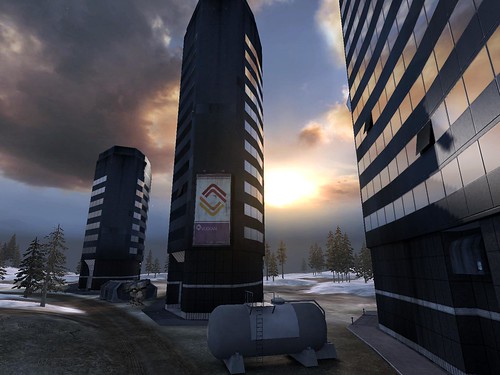
By divine coincidence I only just this week realised how much I like Two Dots On A Map by the Russian Futurists, another gem from the Fluxblog mines. Not only does it have ‘Russian’ in the band name, but it’s also magnificent, majestic, sweeping and unbearably sad. I don’t know what the backing vocals are saying, but the last lines are:
Is this how we’d leave things?
I choose to hear “If we knew we were” as implying that we are, but aren’t facing it. Which is true, and awful.
I actually thought this mopey wistfulness might be a sign of age, but I just now found a text file on my hard drive describing exactly the same thing, written by me in 2002. So I’m just repeating myself, which is worse.
So… I think I was trying to lead in to the subject of game-music associations, which are brilliant. My favourites:
Half-Life 2 and The Great Destroyer, by Low: two of the best things about planet Earth released at the same time – it was a good November. To this day I’ve never actually listened to Low while playing Half-Life 2, because I like Half-Life 2’s in-game music, but I alternated between the two so reliably that the connection forged nonetheless, and now I can’t stop at those weathered, deserted seaside shacks overlooking the glassy sargasso without hearing the exultant Walk Into The Sea, nor whack that childless dangling tyre with a crowbar and not hum a few bars of California. This is another sad one, isn’t it?
System Shock 2 and Cobra And Phases Groop Play Voltage In The Milky Night, by Stereolab: ba-ba b’dow b’dah. Bubbly futuristic electro-pop played over paranoid dystopian futuristic action RPG. I subconsciously reconciled the two by identifying this album’s off-kilter jauntiness with the hollow optimisim of Xerxes’ pre-recorded broadcasts to the long-dead crew of the Von Braun. Good save, subconscious!
Deus Ex and Voodoo Wop, by Clinic: itchy stompy scary medical drone punk played over a nocturnal interactive conspiracy theory? Well, they’re both uneasy, inaccessible and dark.
Hitman: Blood Money and Deep Cuts, by The Knife: sheer coincidence, I assure you, that I got into these at the same time and that the last screenshot I posted of Hitman was of cutting someone deeply with a knife. There’s no connection between music and game beyond the violent overtones – The Knife aren’t even that sinister, a lot of the songs are upbeat or simmeringly sexy.

Yeah, so they’re a little sinister.
